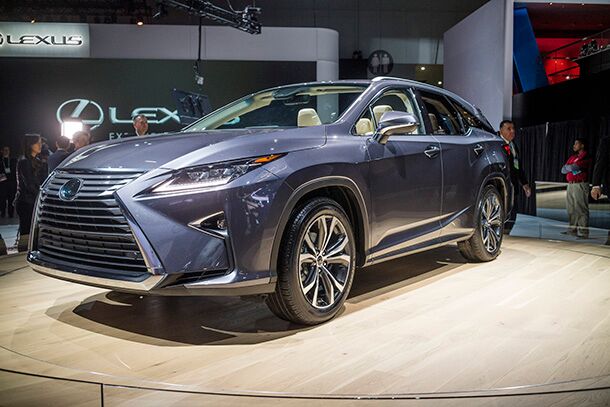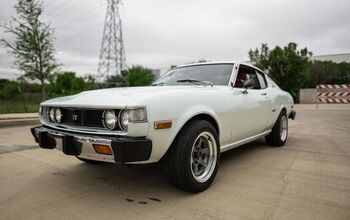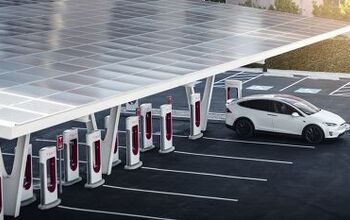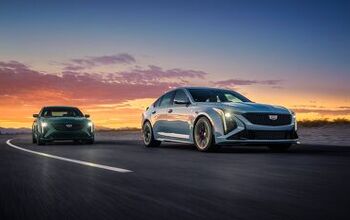Toyota Gaining Ground in Quest for More Light Truck Sales

January was a boffo sales month for Toyota in the United States, with the automaker posting a 16.8 percent year-over-year increase across both the Toyota and Lexus brands. Toyota brand sales rose 17 percent, to the luxury division’s 15 percent.
Don’t expect that kind of growth to continue, says Jack Hollis, Toyota North America’s general manager, as the industry still expects a slump in 2018. More important to Toyota than last month’s sales, however, is the type of vehicles Toyota buyers actually took home. In this case, brand loyalists added crossovers, SUVs, and trucks to their driveway in greater numbers than ever before.
The record set for Toyota light truck sales in the U.S. last month was exactly what the company was hoping for. Still, keeping that truck-buying momentum going is now job one.
Toyota came closer than ever to fixing a persistent product problem last month. As more and more buyers gravitate towards SUVs and trucks, Toyota soon found itself lagging behind the industry average in terms of its cars-to-trucks ratio. Cars — a rapidly shrinking segment — made up too much of Toyota’s sales. Hardly a good way to face the future.
But there’s progress being made on this front. Speaking to Automotive News, Hollis said that over the last four months, American buyers chose light trucks over passenger cars by a ratio of 64:36. Toyota ended 2017 with a sales mix of 58:42. A year earlier, just 53 percent of the company’s U.S. sales were light trucks. In January, however, Toyota cleared the 60 percent bar for the first time, pushing it closer to the industry average (where, presumably, safety lies).
“As we see that, we are gaining more of what the industry is selling,” Hollis said, giving some of the credit for last month’s sales surge to the growing popularity of certain models.
While Toyota brand cars saw a year-over-year sales uptick of 5.7 percent in January, demand for Lexus cars fell by 2.3 percent. Toyota pickup sales rose 27.3 percent, year over year, with growth in Tacoma sales amounting to 33.6 percent. The same trend carried over in Toyota’s SUV division, where sales climbed 26.7 percent compared to the previous January. Only old, low-volume models (Sequoia, Land Cruiser) saw any decrease in sales.
At Lexus, sales of the NX, LX, GX, and RX lines rose a combined 23.6 percent. As we’ve seen recently, Toyota’s pulling out all the stops to make its light truck lineup more appealing to buyers. Besides adding the subcompact C-HR crossover to the stable, the automaker introduced a longer, three-row RX and cheaper, two-row LX, with an improved line of TRD Pro off-road models also on the way. Later this year, we’ll see the redesigned RAV4 — a model already in possession of the “best-selling crossover” title.
Despite earlier efforts to squeeze more Tacomas out of its Texas and Mexico assembly plants, Toyota plans to feed the demand with additional production in the near future.
Actually, it’s likely Toyota would already have reached the industry’s 64:36 truck-to-car ratio, were it not for two names: Camry and Corolla. Those two cars, backed up by decades of name recognition and a solid reputation, continue selling well. Suffice it to say, there’s far worse situations an automaker could find itself in.
[Images: Toyota]

More by Steph Willems
Latest Car Reviews
Read moreLatest Product Reviews
Read moreRecent Comments
- Varezhka I have still yet to see a Malibu on the road that didn't have a rental sticker. So yeah, GM probably lost money on every one they sold but kept it to boost their CAFE numbers.I'm personally happy that I no longer have to dread being "upgraded" to a Maxima or a Malibu anymore. And thankfully Altima is also on its way out.
- Tassos Under incompetent, affirmative action hire Mary Barra, GM has been shooting itself in the foot on a daily basis.Whether the Malibu cancellation has been one of these shootings is NOT obvious at all.GM should be run as a PROFITABLE BUSINESS and NOT as an outfit that satisfies everybody and his mother in law's pet preferences.IF the Malibu was UNPROFITABLE, it SHOULD be canceled.More generally, if its SEGMENT is Unprofitable, and HALF the makers cancel their midsize sedans, not only will it lead to the SURVIVAL OF THE FITTEST ones, but the survivors will obviously be more profitable if the LOSERS were kept being produced and the SMALL PIE of midsize sedans would yield slim pickings for every participant.SO NO, I APPROVE of the demise of the unprofitable Malibu, and hope Nissan does the same to the Altima, Hyundai with the SOnata, Mazda with the Mazda 6, and as many others as it takes to make the REMAINING players, like the Excellent, sporty Accord and the Bulletproof Reliable, cheap to maintain CAMRY, more profitable and affordable.
- GregLocock Car companies can only really sell cars that people who are new car buyers will pay a profitable price for. As it turns out fewer and fewer new car buyers want sedans. Large sedans can be nice to drive, certainly, but the number of new car buyers (the only ones that matter in this discussion) are prepared to sacrifice steering and handling for more obvious things like passenger and cargo space, or even some attempt at off roading. We know US new car buyers don't really care about handling because they fell for FWD in large cars.
- Slavuta Why is everybody sweating? Like sedans? - go buy one. Better - 2. Let CRV/RAV rust on the dealer lot. I have 3 sedans on the driveway. My neighbor - 2. Neighbors on each of our other side - 8 SUVs.
- Theflyersfan With sedans, especially, I wonder how many of those sales are to rental fleets. With the exception of the Civic and Accord, there are still rows of sedans mixed in with the RAV4s at every airport rental lot. I doubt the breakdown in sales is publicly published, so who knows... GM isn't out of the sedan business - Cadillac exists and I can't believe I'm typing this but they are actually decent - and I think they are making a huge mistake, especially if there's an extended oil price hike (cough...Iran...cough) and people want smaller and hybrids. But if one is only tied to the quarterly shareholder reports and not trends and the big picture, bad decisions like this get made.



































Comments
Join the conversation
So Toyota's upping their game in the light truck segments, while increasing passenger car sales in the face of declining sales in that segment. Shocker. The only segments Toyota hasn't mastered are the full-size Pickup and SUV segments. They have entries, but the domestic brands still own these segments. I don't see that situation changing anytime soon.
GM, Ford & FCA had better watch their backs, as Toyota is sneaking up with their trucks. Some love them, others won't go near them, but whoever proves their product reliability is best, they may win in the long run. Me? I still prefer GM, but not like I used to. Being retired, I've bought my last new car, and whatever I replace my 2012 Impala with is anybody's guess. Many preach the gospel of Toyota, but their products simply don't "speak" to me. Who knows? Time will tell.